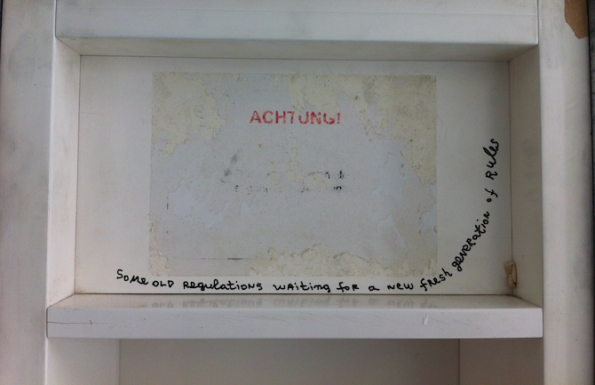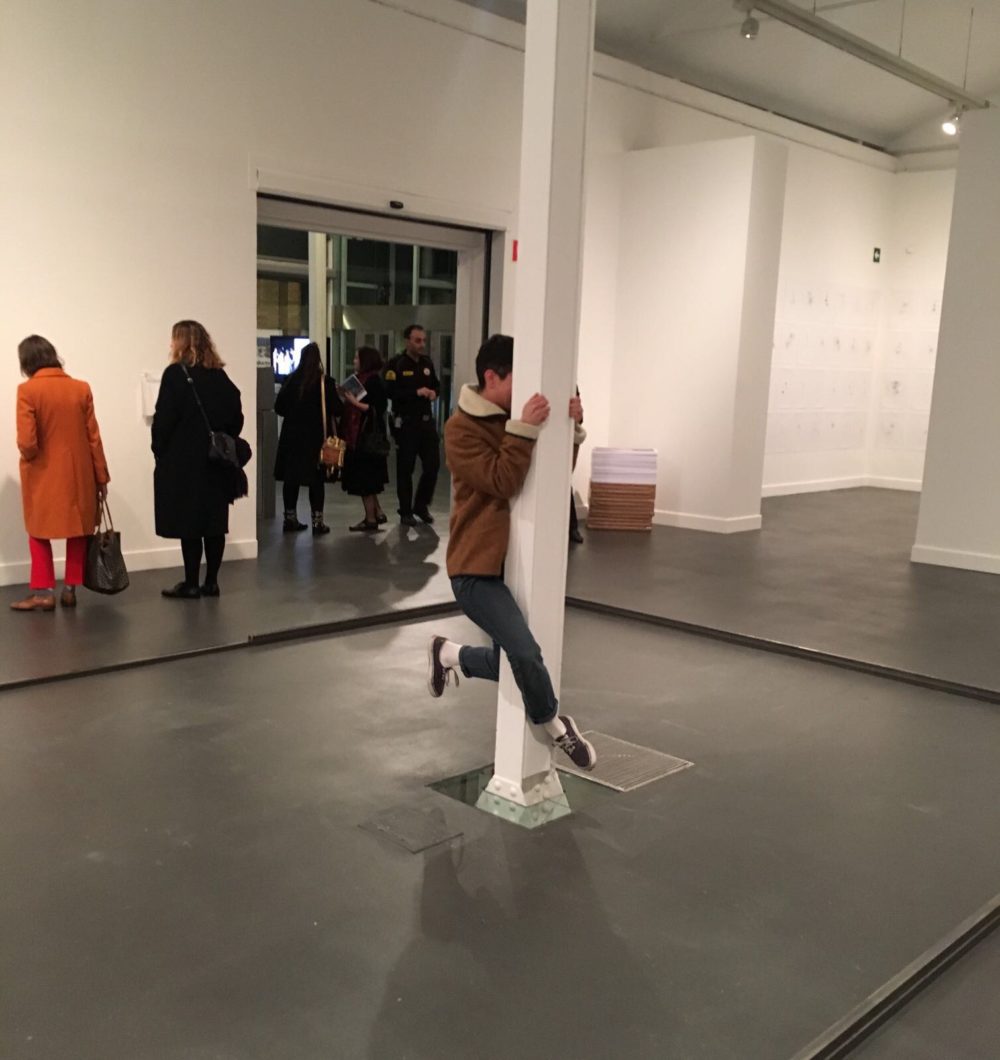Search
To search for an exact match, type the word or phrase you want in quotation marks.
A*DESK has been offering since 2002 contents about criticism and contemporary art. A*DESK has become consolidated thanks to all those who have believed in the project, all those who have followed us, debating, participating and collaborating. Many people have collaborated with A*DESK, and continue to do so. Their efforts, knowledge and belief in the project are what make it grow internationally. At A*DESK we have also generated work for over one hundred professionals in culture, from small collaborations with reviews and classes, to more prolonged and intense collaborations.
At A*DESK we believe in the need for free and universal access to culture and knowledge. We want to carry on being independent, remaining open to more ideas and opinions. If you believe in A*DESK, we need your backing to be able to continue. You can now participate in the project by supporting it. You can choose how much you want to contribute to the project.
You can decide how much you want to bring to the project.

The institution is institutionalized. Who will be the ‘institutionalizer’ who re-institutionalizes it? Jokes, which are usually used strategies for breaking the ice, also have the ability to contain certain doses of seriousness. In this case the adulteration of a tongue-twister functions as a preliminary to introduce another change: that of the art institution as the adversary or the antagonist –in what is known as “institutional criticism” – within a debate driven by artists and other external (but endogenous) agents that for a few decades now has been called “new institutionalism”. That is, the absorption by the institution of the criticism driven against the actual institution and its subsequent propulsion of a self-critical discourse from the inside that has ended up converting the institution into the solution of its own problems. The supposed erosion of the dividing line between the outside and the inside of institutions goes further when the institution not only hasn’t been able to metabolize the criticism(s), so much as has extended its range of action efficiently promoting an interiorising of its structures in this space that once supposed an “outside” or “a beyond”. Now that we are all the institution, thanks to the effective slogan of Andrea Fraser, maybe it would be pertinent to ask how inclusive this “everybody” is, who is permitted entry and if it’s possible or necessary to begin constructing the opposition of some “others”.
With no desire to enter into a debate anchored in a sterile choral monologue, what serves as an example of this “new institutionalism” is the project, Relaunch, with which Ellen Blumenstein takes on the role for the first time of chief curator for the Kunst-werke Institute For Contemporary Art in Berlin. Visually, Relaunch is an exhibition that isn’t an exhibition: it is a catalogue of intentions that extends, like an enigma to be deciphered, through virtually all the spaces that make up the KW. What’s more this time the intermittent obligatory adventurer has a larger terrain for aesthetic jurisdiction, with the opening of spaces and corners that previously the KW didn’t open to the public. That said, for the time being and the opposite of what one might expect, the dilation of the space doesn’t mean a greater number of works or artists within the building. There are hardly any works or art projects in Relaunch. As if a sort of marketing exercise, the project Teasers #1-20 is an institutional advertising campaign that talks to us of the future still to come at KW. A future in which such intentions will be obliged to abandon the former comfort zone inhabited by the discourses –language- before events take charge of determining the contaminating coherence between word and action.
Passing himself off as the spokesperson of Ellen Blumenstein (referring to her as “Ellen”), the Bulgarian artist, Nedko Solakov, fills the walls and rooms of the KW with simple, consciously puerile phrases, that exchange the seriousness and usual condensation of the institutional discourse for the apparent informality and dissemination of the desiderative slogan. Teasers function as a strategy of proximity with which the KW–and with it, Ellen Blumenstein representing the institution through Solakov as a ventriloquist – proposes to reinvent itself as an art centre and collaterally, as a (semi)public space.
Admitting the actual tradition of the centre, Relaunch proposes a present with longings for the future in which the imagination of power hides the risks of the power of an imagination mediatised by the institution, even when it’s self-critical. Because if while one of the potentials of art is its alteration of usual ways of thinking and its capacity to provide new forms of relation with the world, there’s always the possibility that all this potential is left –like the words that form the architecture of the discourses – without any effective demonstration that replaces the contingency. Or that any changes that art thinks it reaches within the institution don’t manage to pass through the doors of a space where the hierarchical solemnity already seems to call into question the real volition for change in the schemes of interpersonal relations that arise in art, as much as in the public sphere in general.

artwriter_curator_esnorquelmaker_chocolateresearcher_technodancer__bikeenthusiast_coffeeaddicted_
"A desk is a dangerous place from which to watch the world" (John Le Carré)